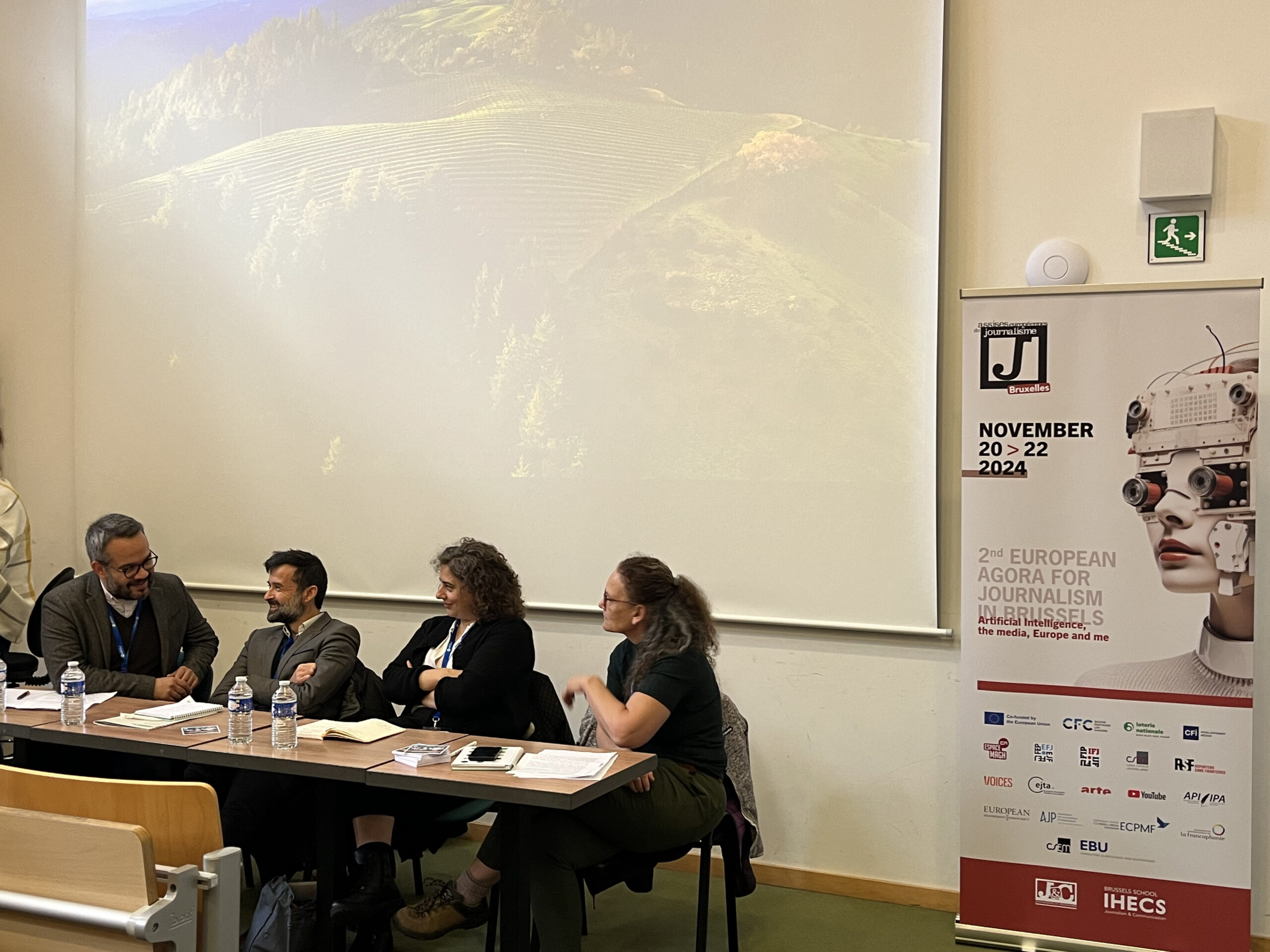With Agnès VERNET (France), vice-président of the French Association for Science journalism (AJSPI), Josée-Nadia DROUIN (Canada), head of the Agence Science Presse and Olivier ABALLAIN (France), deputy director of studies at ESJ Lille.
Moderated by Bálint ABLONNCZY (Hungary), co-founder of Válasz Online.
Key issues
What are the environnmental and human costs of AI algorithms in journalism? Should we necessarily use AI for everyday research? Should we not perhaps re-consider the ways in which we can use these tools in journalism? As a journalist, what is the right way to face AI? How to educate the new generation of journalists?
What they said:
Takeaways
“AI is not a ‘revolution’, but ‘evolution’”, Agnès Vernet said and this is how AI should be understood in its current state. AI should scare neither young journalists nor the general public about the veracity of information, which is checked by journalists. Above all, AI must not be perceived only as a tool for productivity gain within or outside media. If people are thinking of AI in that way, they will never be able to use this tool in a better way.
That is why it is important to train future journalists but also those already in the profession. Most of all, it is important to teach them not to considerate AI as a polished tool and to not depend on it.
David Allias (EPJT)
